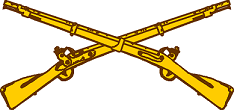Commissioned Officer Jobs
What will I do when I graduate?
For many civilian jobs out there, the Army has its own equivalent--doctors, lawyers, human resources, hospital administrators and journalists--all in addition to the combat arms traditional Army roles. To organize all of these jobs, the Army is divided into branches and these branches guide career progression and job opportunities. Officers are accessed into a single basic branch upon graduation and commissioning. A cadet ranks their desired branches and is then assigned one based on their National Order of Merit (OML) score. Some branches have restrictions; for example, Infantry and Armor are closed to women, Special Forces requires three years experience, and the Medical and Dental Corps requires specific medical degrees. Some branches are also partially reserved for cadets with specific undergraduate degrees. For example, 70% of lieutenants assigned to the Corps of Engineers hold engineering degrees. Sixteen branches are open to new lieutenants.
Combat Arms
Infantry
The Infantry officer is responsible for leading the infantry and combined armed forces during land combat. Job duties include coordinating the training and tactical employment of Infantry Soldiers at all levels of command in U.S. and multinational operations. Infantry officers direct operation and employment of Infantry weapons and equipment such as rifles, machine guns, mortars, hand grenades, rocket launchers, recoilless rifles, armored personnel carriers and Bradley Infantry Fighting Vehicle. Infantry is closed to women.
Armor
Armor officers are responsible for tank and cavalry/forward reconnaissance operations on the battlefield. The role of an 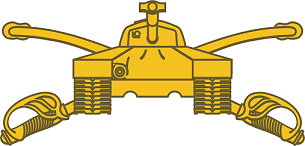 armor officer is to be a leader in operations specific to the armor branch and to lead others in many areas of combat operations. Job duties include commanding the armor units and combined armed forces during land combat Directs operations and employment of tanks, armored vehicles, support infantry, and related equipment. Armor Officers direct training, administration, supply maintenance, transportation, and security activities of the unit. Armor is closed to women.
armor officer is to be a leader in operations specific to the armor branch and to lead others in many areas of combat operations. Job duties include commanding the armor units and combined armed forces during land combat Directs operations and employment of tanks, armored vehicles, support infantry, and related equipment. Armor Officers direct training, administration, supply maintenance, transportation, and security activities of the unit. Armor is closed to women.
Field Artillery
The Field Artillery officer leads the field artillery branch, who neutralizes the enemy by cannon, rocket and missile fire. 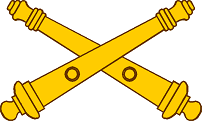 The officer must be an expert in tactics, techniques and procedures for the employment of fire support systems. Job duties include leading field artillery troops and combined armed forces during land combat and coordinating the employment of field artillery Soldiers at all levels of command. Field Artillery officer direct technical fire control and firing operations using both manual and computer techniques. Field Artillery officers participate in the planning and development of doctrine, organization, training, material, leadership, and soldier initiatives to support the field artillery’s role in combined arms operations
The officer must be an expert in tactics, techniques and procedures for the employment of fire support systems. Job duties include leading field artillery troops and combined armed forces during land combat and coordinating the employment of field artillery Soldiers at all levels of command. Field Artillery officer direct technical fire control and firing operations using both manual and computer techniques. Field Artillery officers participate in the planning and development of doctrine, organization, training, material, leadership, and soldier initiatives to support the field artillery’s role in combined arms operations
Air Defense Artillery
The Air Defense Artillery officer leads the air defense artillery branch, who protects U.S. forces from aerial attack, 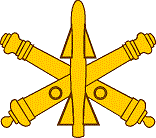 missile attack and enemy surveillance. They must be an expert in tactics, techniques and procedures for the employment of air defense systems. They also become an expert in one both of the PATRIOT missile system and the AVENGER system. Air Defense Artillery officers coordinate and provide expertise at all levels of command and develop the doctrines and plans essential to the successful use of Air Defense Artillery weapons in support of air/land combat operations and defense against enemy aircraft and missile attacks.
missile attack and enemy surveillance. They must be an expert in tactics, techniques and procedures for the employment of air defense systems. They also become an expert in one both of the PATRIOT missile system and the AVENGER system. Air Defense Artillery officers coordinate and provide expertise at all levels of command and develop the doctrines and plans essential to the successful use of Air Defense Artillery weapons in support of air/land combat operations and defense against enemy aircraft and missile attacks.
Aviation
Aviation officers coordinate/lead operations using Army helicopters: OH-58 Kiowa, UH-60 Black Hawk, CH-47 Chinook 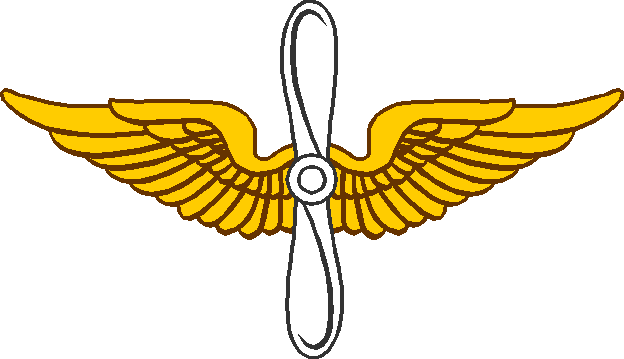 and the AH-64 Apache. These operations can haul troops and carry supplies, as well as provide quick-strike and long-range target engagement. Job duties include coordinating employment of aviation Soldiers and aircraft at all levels, commanding aviation platoons, providing aviation coordination, and instructing aviation skills at service schools and combat training centers. Aviators direct and coordinate the employment of Army aviation units in support of land combat operations.
and the AH-64 Apache. These operations can haul troops and carry supplies, as well as provide quick-strike and long-range target engagement. Job duties include coordinating employment of aviation Soldiers and aircraft at all levels, commanding aviation platoons, providing aviation coordination, and instructing aviation skills at service schools and combat training centers. Aviators direct and coordinate the employment of Army aviation units in support of land combat operations.
Special Forces
The Special Forces officer is the team leader of an operational detachment alpha, a highly trained 12-man team that is deployed in rapid-response situations. The officer organizes the mission, outfits the team and debriefs them on the 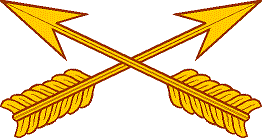 mission objective. Special Forces includes positions concerned with the employment of highly specialized Army units and elements to accomplish specific missions throughout the levels of warfare (Strategic, Operational and Tactical). Typically, officers lead the team in the following types of missions: Counter-Terrorism, Direct Action, Foreign Internal Defense, Special Reconnaissance, and Unconventional Warfare. To be eligible, Special Forces candidates must be a captain or 1st Lieutenant promotable.
mission objective. Special Forces includes positions concerned with the employment of highly specialized Army units and elements to accomplish specific missions throughout the levels of warfare (Strategic, Operational and Tactical). Typically, officers lead the team in the following types of missions: Counter-Terrorism, Direct Action, Foreign Internal Defense, Special Reconnaissance, and Unconventional Warfare. To be eligible, Special Forces candidates must be a captain or 1st Lieutenant promotable.
Corps of Engineers
The Corps of Engineers is a Combat Arms Branch which also has combat support and combat service support roles.  An engineer officer can help build structures, develop civil works programs and even provide combat support. Job duties include: Sapper (emplace demolitions, conduct reconnaissance and support maneuver units with mobility, countermobility and survivability), Bradley (destroy, neutralize and suppress the enemy using the Bradley Fighting Vehicle), Construction (construct roads, buildings, military bases, airfields, etc.), Bridge (construct, emplace or assemble numerous bridges), Rescue (perform search and rescue operations), and Training (train the force, write new policy and research alternative engineering technology).
An engineer officer can help build structures, develop civil works programs and even provide combat support. Job duties include: Sapper (emplace demolitions, conduct reconnaissance and support maneuver units with mobility, countermobility and survivability), Bradley (destroy, neutralize and suppress the enemy using the Bradley Fighting Vehicle), Construction (construct roads, buildings, military bases, airfields, etc.), Bridge (construct, emplace or assemble numerous bridges), Rescue (perform search and rescue operations), and Training (train the force, write new policy and research alternative engineering technology).
Combat Support
Signal Corps
The Signal officer leads the Signal Corps, which is responsible for the Army’s entire systems of communication.  Officers plan and execute all aspects of communication on a mission and are critical to the Army’s continued success, as well as maintain the Army’s voice, data and information systems. Signal Officers direct and control units and activities involved with the application of electrical, electronics, and systems engineering and management principles, in the design, test acceptance, installation, operation, and maintenance of Signal systems, equipment, networks, and facilities.
Officers plan and execute all aspects of communication on a mission and are critical to the Army’s continued success, as well as maintain the Army’s voice, data and information systems. Signal Officers direct and control units and activities involved with the application of electrical, electronics, and systems engineering and management principles, in the design, test acceptance, installation, operation, and maintenance of Signal systems, equipment, networks, and facilities.
Military Police Corps
A Military Police officer is responsible for leading the Soldiers that protect lives and property on Army Installations.  Officers supervise the execution of the five military police Battlefield functions: Maneuver and mobility support operations (reconnaissance and surveillance), Area security operations (site security and response), Law & order operations (law enforcement and developing host-nation police forces), Internment/resettlement operations (military prisoners and enemy combatants), and Police intelligence operations. Military Police Officers support counter-terrorism; the enforcement of military laws and regulations; keeping of order; prevention and investigation of crime, apprehension of military offenders; traffic and movement control; physical security of critical equipment, facilities, and the safety of Government officials. Military Police Officers also direct criminal investigations, crime surveys, protective service missions, polygraph support and criminal investigation activities.
Officers supervise the execution of the five military police Battlefield functions: Maneuver and mobility support operations (reconnaissance and surveillance), Area security operations (site security and response), Law & order operations (law enforcement and developing host-nation police forces), Internment/resettlement operations (military prisoners and enemy combatants), and Police intelligence operations. Military Police Officers support counter-terrorism; the enforcement of military laws and regulations; keeping of order; prevention and investigation of crime, apprehension of military offenders; traffic and movement control; physical security of critical equipment, facilities, and the safety of Government officials. Military Police Officers also direct criminal investigations, crime surveys, protective service missions, polygraph support and criminal investigation activities.
Military Intelligence Corps 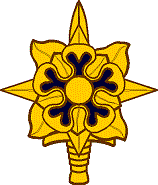
The Army’s Military Intelligence is responsible for all collected intelligence during Army missions. They provide essential information that often save the Soldiers fighting on front lines. Job duties include assessing risks associated with friendly/enemy courses of action and acting to counter/neutralize intelligence threats. Military Intelligence Officers specialize in these specific areas: Imagery Intelligence, All-Source Intelligence, Counterintelligence, Human intelligence, Signals intelligence/electronic warfare, and All-source intelligence aviation.
Civil Affairs
Civil Affairs officers act as a liaison between the Army and civilian authorities and populations. The civil affairs officer 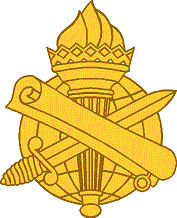 combines regional expertise, language competency, political-military awareness, cross-cultural communication and professional military skills to conduct civil affairs operations and support civil-military operations in support of conventional and special operations forces. Civil Affairs Officers direct the conduct of civil affairs command support, foreign-internal defense, unconventional warfare, civil administration, and numerous other missions, both overt and covert, in peacetime or when activated for crisis or war. Civil Affairs is not an entry-level branch and most positions are for majors.
combines regional expertise, language competency, political-military awareness, cross-cultural communication and professional military skills to conduct civil affairs operations and support civil-military operations in support of conventional and special operations forces. Civil Affairs Officers direct the conduct of civil affairs command support, foreign-internal defense, unconventional warfare, civil administration, and numerous other missions, both overt and covert, in peacetime or when activated for crisis or war. Civil Affairs is not an entry-level branch and most positions are for majors.
Chemical Corps
A Chemical, Biological, Radiological and Nuclear (CBRN) officer commands the Army branch that specifically defends  against the threat of CBRN weapons and Weapons of Mass Destruction. These officers lead an extraordinary chemical unit that is completely dedicated to protecting our nation. Chemical officers advise commanders and staff on chemical and nuclear employment, defensive actions involving chemical, biological and radiological warfare, and plans for use of and defense against smoke and flame employment.
against the threat of CBRN weapons and Weapons of Mass Destruction. These officers lead an extraordinary chemical unit that is completely dedicated to protecting our nation. Chemical officers advise commanders and staff on chemical and nuclear employment, defensive actions involving chemical, biological and radiological warfare, and plans for use of and defense against smoke and flame employment.
Combat Service Support
Adjutant General Corps
An Adjutant General officer is responsible for providing personnel support that affects Soldiers’ overall welfare and 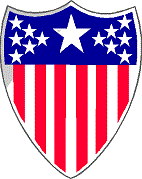 well-being, while assisting commanders by accounting for and keeping Soldiers combat-ready. Job duties include acting as principal advisor to the battalion commander for all matters concerning human resource support for all assigned and attached personnel, as well as supervising all strength management/strength distribution actions. AG Officers develops and operates the Army’s personnel, administrative, and community activities support systems to build and sustain combat readiness.
well-being, while assisting commanders by accounting for and keeping Soldiers combat-ready. Job duties include acting as principal advisor to the battalion commander for all matters concerning human resource support for all assigned and attached personnel, as well as supervising all strength management/strength distribution actions. AG Officers develops and operates the Army’s personnel, administrative, and community activities support systems to build and sustain combat readiness.
Finance Corps
The financial manager is in charge of the Army’s Finance Corps, who are responsible for sustaining missions through 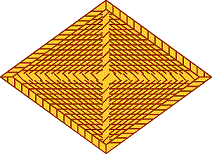 purchases of services and supplies. Job duties include commanding financial operations, coordinating employment of Finance Soldiers at all levels of command, and directing Army pay, commercial vendor support, disbursement of public funds, auditing, travel allowances, accounting, financial management information systems and banking. Finance offices provide administrative services in support of payment of legal obligations of the Army or collection of monies due the United States, as well as interpret financial laws and Comptroller General decisions.
purchases of services and supplies. Job duties include commanding financial operations, coordinating employment of Finance Soldiers at all levels of command, and directing Army pay, commercial vendor support, disbursement of public funds, auditing, travel allowances, accounting, financial management information systems and banking. Finance offices provide administrative services in support of payment of legal obligations of the Army or collection of monies due the United States, as well as interpret financial laws and Comptroller General decisions.
Transportation Corps
The Transportation Corps is responsible for moving supplies, troops and equipment anywhere on the globe. During war, the Transportation Corps utilizes trucks, boats and airplanes to provide extremely fast support to the combat teams on the frontlines. Transportation officers are experts in the systems, vehicles and procedures of moving troops and supplies in the Army. Transportation Officers manage all facets of transportation related to the planning, operation, coordination and evaluation of all methods of transportation including multi-modal systems.
Ordnance Corps
Ordnance officers are responsible for ensuring that weapons systems, vehicles and equipment are ready and available — and in perfect working order — at all times. They also manage the developing, testing, fielding, handling, storage and disposal of munitions. The Ordnance Corps is also responsible for the detection, identification, rendering safe, recovery, or destruction of hazardous U.S. and foreign munitions (EOD).
Quartermaster Corps
Quartermaster officers are responsible for making sure equipment, materials and systems are available and 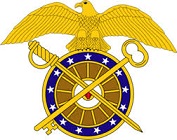 functioning for missions. More specifically, the quartermaster officer provides supply support for Soldiers and units in field services, aerial delivery, and material and distribution management. Quartermaster Officers are the primary planners for logistical support (supply and services) within the command.
functioning for missions. More specifically, the quartermaster officer provides supply support for Soldiers and units in field services, aerial delivery, and material and distribution management. Quartermaster Officers are the primary planners for logistical support (supply and services) within the command.
Special Branches
Army Judge Advocate General's Corps
The Army Judge Advocate General’s Corps attorney is responsible for offering legal support that involves military 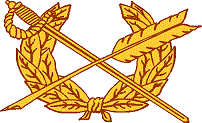 operations. They primarily focus on the areas of criminal law, legal assistance, civil/administrative law, labor/employment law, international/operational law and contract/fiscal law. Job duties include prosecuting criminal cases under the Uniform Code of Military Justice; providing legal advice to Soldiers, officers and their families; offering legal reviews, ethics opinions and advice to commanders; and representing Soldiers at courts-martial. JAG officers furnish legal advice and services to the Active Army and the U.S. Army Reserves in civil and criminal legal practice, including the fields of Business, Property, Administration, and Financial Operations.
operations. They primarily focus on the areas of criminal law, legal assistance, civil/administrative law, labor/employment law, international/operational law and contract/fiscal law. Job duties include prosecuting criminal cases under the Uniform Code of Military Justice; providing legal advice to Soldiers, officers and their families; offering legal reviews, ethics opinions and advice to commanders; and representing Soldiers at courts-martial. JAG officers furnish legal advice and services to the Active Army and the U.S. Army Reserves in civil and criminal legal practice, including the fields of Business, Property, Administration, and Financial Operations.
Chaplain Corps
Army Chaplains have the responsibility of caring for the spiritual well-being of Soldiers and their Families. An Army 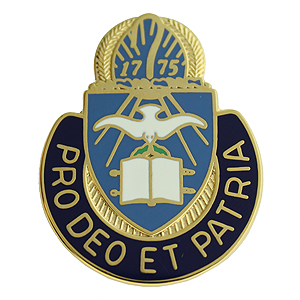 chaplain’s flock can consist of over 1,500 people. The Army chaplaincy is a religiously diverse population reflecting the diversity of the Army, yet each chaplain ministers according to the tenets of his or her distinctive faith community. Unlike most officers in the Army, a chaplain begins serving as a staff officer immediately. Job duties include providing advice in matters pertaining to religion, morals and morale; overseeing a full program of religious ministries, including workshops, counseling sessions, religious education and special events; officiating official ceremonies such as military functions, funerals and memorials; and providing religious ministry to a variety of armed service personnel and civilians from the U.S., foreign nations and agencies. Army chaplains must obtain an ecclesiastical endorsement from a religious organization.
chaplain’s flock can consist of over 1,500 people. The Army chaplaincy is a religiously diverse population reflecting the diversity of the Army, yet each chaplain ministers according to the tenets of his or her distinctive faith community. Unlike most officers in the Army, a chaplain begins serving as a staff officer immediately. Job duties include providing advice in matters pertaining to religion, morals and morale; overseeing a full program of religious ministries, including workshops, counseling sessions, religious education and special events; officiating official ceremonies such as military functions, funerals and memorials; and providing religious ministry to a variety of armed service personnel and civilians from the U.S., foreign nations and agencies. Army chaplains must obtain an ecclesiastical endorsement from a religious organization.
Medical Corps
An Army Medical Corps officer is responsible for the overall health of Soldiers and providing health care to Soldiers’ 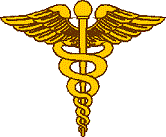 families and others eligible to receive this care in the military community. During combat, the Medical Corps officer oversees the emergency medical management of casualties and makes sure Soldiers are combat ready when it comes to their overall health. Medical Corps Officers hold a Doctor of Medicine or Doctor of Osteopathy degrees. These physicians are responsible for the professional care of the sick and injured.
families and others eligible to receive this care in the military community. During combat, the Medical Corps officer oversees the emergency medical management of casualties and makes sure Soldiers are combat ready when it comes to their overall health. Medical Corps Officers hold a Doctor of Medicine or Doctor of Osteopathy degrees. These physicians are responsible for the professional care of the sick and injured.
Dental Corps
An Army Dental Corps officer is responsible for the dental health of Soldiers and their families. They are also 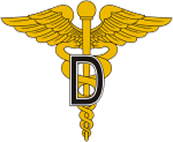 responsible for providing health care to Soldiers’ families and others eligible to receive this care in the military community. During combat, the Dental Corps officer assists in the emergency medical management of casualties. In both peace and war, the Dental Corps has the mission to support casualty identification through dental forensic identification operations. The principal functions performed by military dentists are: clinical and laboratory dentistry, command and staff, teaching, and research.
responsible for providing health care to Soldiers’ families and others eligible to receive this care in the military community. During combat, the Dental Corps officer assists in the emergency medical management of casualties. In both peace and war, the Dental Corps has the mission to support casualty identification through dental forensic identification operations. The principal functions performed by military dentists are: clinical and laboratory dentistry, command and staff, teaching, and research.
Veterinary Corps
As an Army Veterinary Officer, you can practice in three primary areas: animal medicine, veterinary public health, and 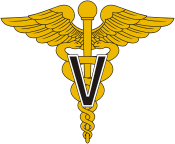 research and development. You will be responsible for treating government-owned animals and the valued pets of service members and their families. Army Veterinary Corps officers are also responsible for programs ensuring the safety and security of Department of Defense food supplies, both here and abroad. Approximately one-third of Veterinary Corps officers are involved in research and development in an incredible range of focus areas, from basic breast cancer research to vaccine development. Many times, Army veterinarians deliver public health programs around the world such as vaccination programs in Ecuador, teaching Thai veterinary technicians, or supporting foot and mouth disease eradication efforts in Mongolia.
research and development. You will be responsible for treating government-owned animals and the valued pets of service members and their families. Army Veterinary Corps officers are also responsible for programs ensuring the safety and security of Department of Defense food supplies, both here and abroad. Approximately one-third of Veterinary Corps officers are involved in research and development in an incredible range of focus areas, from basic breast cancer research to vaccine development. Many times, Army veterinarians deliver public health programs around the world such as vaccination programs in Ecuador, teaching Thai veterinary technicians, or supporting foot and mouth disease eradication efforts in Mongolia.
Army Medical Specialists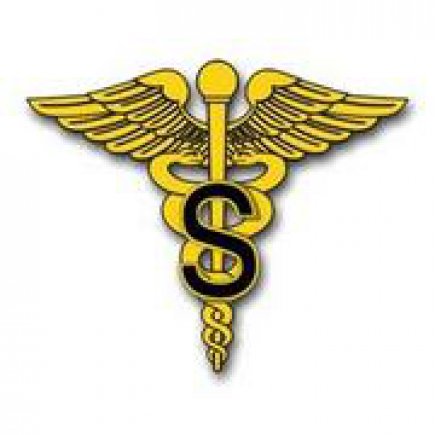
Medical Specialist Corps officers are essential in treating and helping the overall health of Soldiers and their families. The Army Medical Specialist Corps includes four areas of specialty: Occupational Therapist, Physical Therapist, Dietitian, and Physician Assistant. They conduct and supervise the operation of these occupational therapy, physical therapy and dietetic programs and establish and execute quality assurance programs which ensure optimal standards are maintained.
Army Nurse Corps
Nurse Corps officers lead a nursing team that cares for Soldiers and their families. As part of the Army Nurse Corps,  they play an important role in improving the overall quality of life for Soldiers and their families. Duties include organizing resources for patients and their families for help with inpatient, outpatient and home care and commanding shifts on a nursing unit in a field hospital or installation. For more information about Nursing opportunities in ROTC, click here.
they play an important role in improving the overall quality of life for Soldiers and their families. Duties include organizing resources for patients and their families for help with inpatient, outpatient and home care and commanding shifts on a nursing unit in a field hospital or installation. For more information about Nursing opportunities in ROTC, click here.
Medical Service Corps
Medical Service Corps officers command the medical service corps that treats and helps the Soldiers and their families 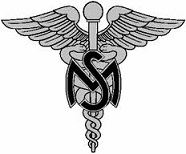 in a variety of areas: Behavioral sciences (social workers, clinical psychologists and counseling psychologists), Health administration services, Laboratory sciences (biochemists, clinical laboratory officers, microbiologists and research psychologists), Optometry, Pharmacy, Podiatry, and Preventive medicine sciences (medical science officers, entomologists, audiologists and environmental science/engineering officers). Medical Service Officers plan for and direct health care facilities and organizations. Medical Service Officers also serve as MEDEVAC pilots.
in a variety of areas: Behavioral sciences (social workers, clinical psychologists and counseling psychologists), Health administration services, Laboratory sciences (biochemists, clinical laboratory officers, microbiologists and research psychologists), Optometry, Pharmacy, Podiatry, and Preventive medicine sciences (medical science officers, entomologists, audiologists and environmental science/engineering officers). Medical Service Officers plan for and direct health care facilities and organizations. Medical Service Officers also serve as MEDEVAC pilots.


